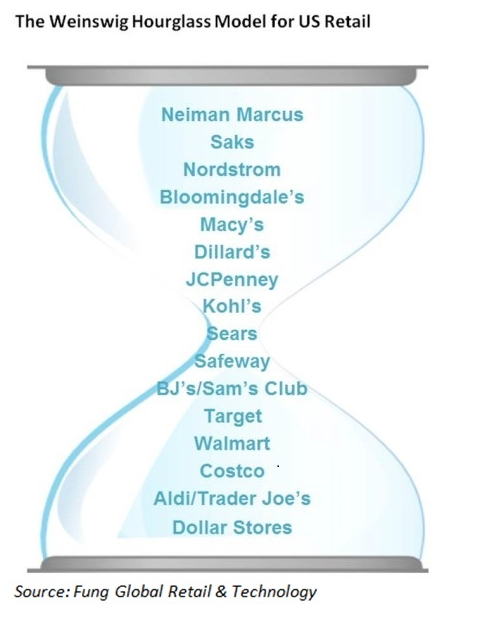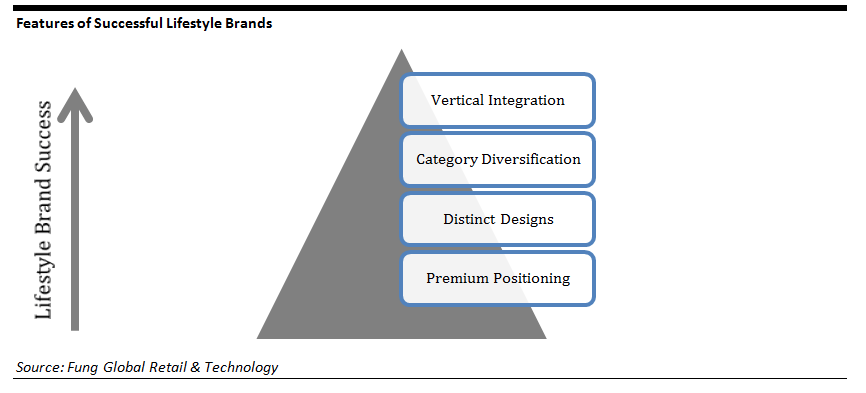There are times when you want the prestige that comes with wearing luxury clothing brands, and others when you want the confidence and self-expression lifestyle brands have to offer. However, it looks like the two are soon becoming one and the same.
Retail analyst for Fung Global Retail, Deborah Weinswig, explained on Forbes how particular lifestyle brands, like aspirational brand Lululemon Athletica for example, are providing consumers with something of a luxury experience. Lululemon has managed to break records with its fourth-quarter earnings, making revenues around $704.3 million—a nearly 17 percent year-over-year increase from 2014.
“Retail outperformers tend to be polarized, positioned at either the high-end or the low-end, while middle-market retailers tend to be squeezed by rising interest rates and increasing standards at the budget retailers,” Weinswig notes. “At the upper end of retail, one particular sector is winning: lifestyle brands.”
The “Weinswig Hourglass Model,” using data from Fung Global Retail and Technology, compares high-end brands to the not-so-high ones, spanning from Neiman Marcus to Dollar Stores.

“They [lifestyle brands] have a premium, aspirational brand identity that suggests a certain quality of lifestyle,” Weinswig explained. “They are often younger brands, rather than heritage luxury brands. The brands have distinct design characteristics that consumers like to be recognized as wearing or owning.” She also noted several brands that were taking advantage of lifestyle needs, including Ted Baker, Sweaty Betty, Under Armor athletic gear, Fitbit, Supreme and even Apple. She noted that each of these companies were “strong performers” over the past few years, with strong financial results.
Another breakdown looked at the four key components that make lifestyle branding so effective:
- Vertical integration
- Category diversification
- Distinct designs
- Premium positioning
All of these tie in together for overall success, indicating that brands can really take off with the right design and promotional push.

“What sets the most successful lifestyle brands apart is that they tend to offer a distinct experience, largely because they own and operate their own stores, along with wholesaling through third-party retailers,” Weinswig concluded. “This allows them to control the retail experience and provide the customer with a singular, concrete brand image—something of symbolic value to the customer.” She also noted that Lululemon, alongside Bandier and Nike, have a done great job showcasing not only style, but also health consciousness and wellness, with consumers heavily in pursuit.

